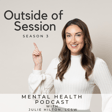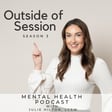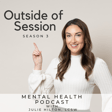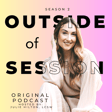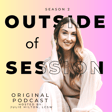
Mirror, Mirror: Creating a Healthy Body Image in Therapy
How about we don’t start a crash diet this New Year- mmkay? Instead, let’s be a generation of women who value self-love and find peace with the incredible bodies we have!
Tune in for a candid and compassionate conversation as we delve into the complexities of body image. In this episode, Julie sat down with Chandler Dunham to discuss the impact of societal influences (looking at you, diet culture), personal narratives, and therapeutic strategies for cultivating a positive and healthy relationship with your body.
About today's guest:
Chandler Dunham is a LMSW practicing with Wholeheart Psychotherapy. She specializes in trauma, eating disorders, mindfulness, Brainspotting, and self compassion for adolescents and adults. She also recently self published a body image workbook, “Reclaiming Your Reflection” which can be found on Amazon.
Resources:
https://www.amazon.com/Reclaiming-Your-Reflection-Workbook-Relationship/dp/B0CJXGRW4Z/ref=sr_1_1?crid=33R6F5ML0WTJ1&keywords=reclaiming+your+reflection&qid=1695941374&sprefix=reclaiming+your+reflecti%2Caps%2C145&sr=8-1
Get in touch with Chandler:
cdunham@wholeheartpsychotherapy.net
713.502.4080
